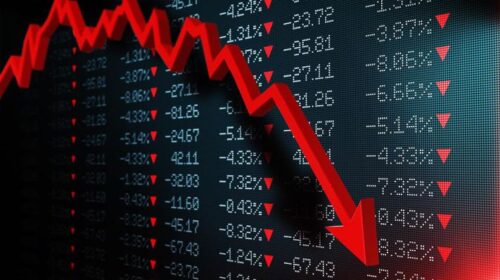Despite visible green shoots in the economy, the mounting political pressure seems to have pushed the government to the brink of once again falling in the subsidy trap and reversing all the gains, so painstakingly made, in the many last months.
Things went out of control during the first three months of this regime for obvious reasons. The outgoing government, sensing its ouster, reduced the prices of petroleum products when the global markets were peaking. At the same time the power rates were reduced by Rs5/unit. Both concessions were granted for five months from February to June 2022. This decision derailed the IMF programme as it was in contravention of the agreement the PTI signed with the Bretton Woods institution. Pakistan was already short of resources and the suspension of the IMF programme stopped all international funding.
The present regime, fearing aggressive PTI protest, delayed withdrawing the public appeasing concession of the previous regime. That played havoc with the economy and mounted price pressures further.
The price hikes were so sharp that the electorate forgot the unwarranted increase in inflation during the 40 months tenure of PTI. The indecision by the government hurt the economy badly.
When the regime was finally forced to increase petroleum and power rates it lost the public support. Now that the things are improving it is in haste to pass on the benefits to the electorate even before they are due.
Our political culture is such that leaders hurl threats against opponents, accuse them of corruption and motivate the masses on strikes and agitations on economic issues that could be addressed through painful measures.
This is true on both sides of the political divide. No leader, no matter how popular he/she may be, lacks the charisma to make the masses bow down to reality and accept measures needed to take the economy forward. The economy has reached a stage where no government could operate without generating revenues.
There would be no need for a huge petroleum levy if the genuinely due taxes on income are collected. It would require changing laws whereby all incomes must be taxed equally.
It is unfair that a landlord earns billions from agriculture without paying income tax. It is also unjust that a stockbroker may earn an unlimited amount through stock trading without paying income tax in line with what an industrialist pays on the same income. The real estate tycoons amass fortune without paying taxes. Does this make any sense that a shopkeeper operating in a posh locality lives lavishly without paying tax in line with his lifestyle? While an employee drawing meagre salary pays high tax and lives miserably. The politicians protect the traders, agriculturists, stockbrokers, and real estate players, while the rest are bombarded with taxes.
The government’s unwillingness to tax the influential segments of the society has resulted in stressing the manufacturing sector. In fact, many industrialists are in agriculture, real estate, capital market and trading to enjoy the tax-free perks. This has stopped job creation that comes from manufacturing.
The GDP of the country grows regularly but the real incomes of masses continue to erode. Stable and consistent fair economic policies protected by law are must for the country to embark on a sustained growth path.







